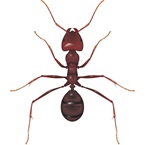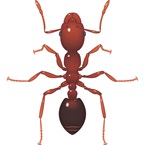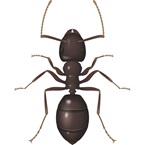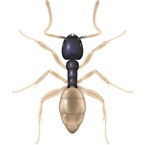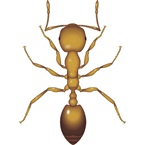Species category: Ant
Scientific Name: Technomyrmex albipes
Family: Formicidae
Description
A small, dull, and cloudy-black coloured ant which can reach up to 3mm in length during adulthood. It is distinguished by the pale colouration on all of its tarsi and antennae which are a whitish-yellow colour. Unlike the Common Black Ant, it features a single petiolar node which is hidden and has 12 antennal segments.
Behaviour
These social ants are known to create incredibly large colonies that have a range of queens. Their reproduction potential is phenomenal due to the multiple fertile members of the colony. Some colony sizes are estimated at tens, even hundreds of thousands.
The White-Footed Ant is not a biting insect and primarily exists on sugary foods, particularly honeydew and occasionally proteins. Workers from this trailing species are very prevalent when foraging, as they can exist in large numbers.
Region
Present all across Malaysia and in many parts of the world, these ants are native to tropical Asia.
Habitat
Nests are more commonly located outdoors and there are often additional nests in close proximity. These new nests are created by the process of budding, where a selection of male and female ants leave the original nest and start a new colony.
Nests can be found in trees, shrubs or anywhere that will accommodate a group of ants including brick voids and behind fascias.
Risks
Seen more as a nuisance rather than a pest, these ants are troublesome because of their large colonies and constant foraging in kitchens, bathrooms and the exteriors of buildings.
Agricultural and crop damage is often worse in the presence of White-footed ants as they protect aphids and other bugs in order to feast on their sweet secretions. Protecting these bugs allows them to destroy the plants they inhabit.

